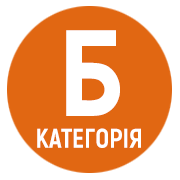HISTORICAL MEMORY AND RUSSIA’S WAR AGAINST UKRAINE: PROBLEMS AND CHALLENGES OF EUROPEAN INTEGRATION
DOI:
https://doi.org/10.32999/ksu2786-5118/2025-50-1Keywords:
historical memory, memory politics, Russian-Ukrainian war, European integration, national identity, decommunisation, hybrid warAbstract
The purpose of this article is to analyse aspects of Ukrainian historical memory through the prism of the Russian-Ukrainian war in the context of European integration. The importance of this goal lies in the complexity of forming the national identity of the Ukrainian people as part of the family of European nations, which is a necessary condition for ensuring the effectiveness of nation-building processes and the conduct of Ukraine’s state policy towards the functioning of the national security system. The methodological basis of the study was formed by such general and special methods of scientific research as monitoring, abstraction and abstract-logical, historical-typological and institutional methods. Given the complexity of the research, it was decided to apply an interdisciplinary approach as an effective way of combining several scientific disciplines at once. An analysis of previous scientific works on the chosen topic showed a wide interest in it in the international scientific community, which is determined by the relevance of the topic of the Russian-Ukrainian war for both domestic and foreign researchers. The scientific novelty of the research lies in the proposal of an alternative algorithm for shaping historical memory policy in Ukraine: not as a former colony of the Russian Federation, but as a state whose people have always been part of European civilisation. The results of the work demonstrate the exceptional role of historical memory as an effective tool for nation-building and state policy, which was given to Ukrainian institutions only after the start of Russia’s hybrid aggression and annexation of Crimea, which became the main factor in the transformation of the collective memory of Ukrainians and popularised the ideas of European integration. Among the main prospects for memory policy in Ukraine in the context of European integration, the introduction of narratives of peaceful coexistence with neighbours with whom Ukrainians have historically fought, and joint study and forgiveness of past crimes, such as the Volhynia and Kryvyi Rih tragedies, were noted. The conclusions reveal prospects for further research, which consist in creating a comparative characterisation of various aspects that shape the historical memory of Ukraine and neighbouring states in order to identify their differences, which could become the basis for a strategy for cooperation with them and the formation of plans for interaction in the context of strengthening European integration processes.
References
Телегуз І., Телегуз А. Українська ідентичність у часі та просторі: історична пам’ять, інтерпретація минулого та сучасні виклики війни. Наукові записки ВДПУ імені Михайла Коцюбинського. Серія: Історія. 2025. №. 51. С. 79–87. DOI: https://doi.org/10.31652/2411-2143-2025-51-79-87
Чупрінова Н. Ю., Севрук І. І., Соколовська Ю. В. Історична пам’ять та національна ідентичність в умовах російсько-української війни (2014–2024 рр.). Вчені записки ТНУ імені В.І. Вернадського. Серія: Історичні науки. 2024. Вип. 35. №. 3. С. 95–99. DOI: https://doi.org/10.32782/2663-5984.2024/3.15
Філіпович М. Проблеми формування історичної пам’яті в освітній сфері України. Літопис Волині. 2023. №. 28. С. 174–178. DOI https://doi.org/10.32782/2305-9389/2023.28.24
Ратушна О. Українська національна ідентичність та євроінтеграція: історико-соціальний аспект. Актуальнi питання гуманiтарних наук. 2022. Вип. 57. №. 3. С. 4–9. DOI: https://doi.org/10.24919/2308-4863/57-3-1
Стрільчук Л. В. Контраверсійність політики пам’яті у сучасній Україні: проблеми подолання пострадянських наративів. Baltija Publishing. 2024. С. 180–202. DOI: https://doi.org/10.30525/978-9934-26-465-8-8.
Budryte D. Memory politics and the study of crises in International Relations: Insights from Ukraine and Lithuania. Different Shades of the Past. 2023. P. 11–40. DOI: https://doi.org/10.1515/9783111000596
Amiot H. Framing the present through the past: Ukrainian diaspora in France, Holodomor memory and the 2014 critical juncture. Ethnic and Racial Studies. 2024. Vol. 47. №. 2. P. 367–390. DOI: https://doi.org/10.1080/01419870.2023.2261291
Балинська О. М. Пам’ять як семіотичний засіб формування загальнолюдських прав та історико-національної правової політики держави. Аналітично-порівняльне правознавство. Розділ 7: Філософія права. 2024. С. 746–753. DOI:10.24144/2788-6018.2024.01.132
Wanner C. Burden of dreams: History and identity in post-Soviet Ukraine. Penn State Press, 2010. 288 p.
Kuzio T. History, memory and nation building in the post-Soviet colonial space. Nationalities Papers. 2002. Vol. 30. №. 2. P. 241–264. DOI: 10.1080/00905990220140649
Про внесення зміни до Кодексу України про адміністративні правопорушення щодо заборони виготов- лення та пропаганди георгіївської (гвардійської) стрічки : Закон України від 16.05.2017 р. № 2031-VIII. URL: https://zakon.rada.gov.ua/laws/show/2031-19#Text (дата звернення: 23.04.2025).
Радіо Свобода. 81% українців підтримують визнання ОУН-УПА учасниками боротьби за незалежність України – опитування. URL: https://www.radiosvoboda.org/a/news-upa-opytuvannia/31834466.html (дата звернення: 23.04.2025).



